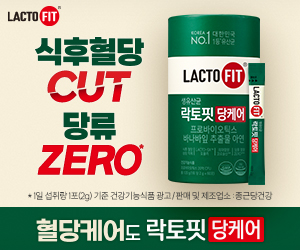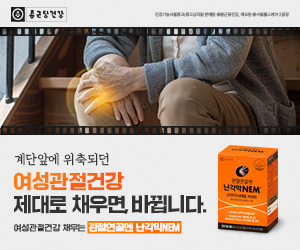-- 규제 당국은 L2, L4, L5와 D3가 환경 및 인간의 건강에 끼치는 유해성이 적다고 결론 지어
(워싱턴 2019년 8월 7일 PRNewswire=연합뉴스) 세계실리콘협의회(Global Silicones Council)[https://globalsilicones.org/ ](GSC) 회원들은 L2, L4, L5와 D3[1] 등의 다양한 실리콘 물질에 대한 캐나다의 유해성 기반 평가 적용[http://gazette.gc.ca/rp-pr/p1/2019/2019-06-01/html/notice-avis-eng.html ]을 환영한다. 캐나다 환경부 장관과 보건부 장관은 이 실록산들이 다량 혹은 집중된 형태 혹은 환경에 위험을 초래하거나 인체에 유해한 상태로 환경에 들어오지 않는다고 결론지었다. 이에 따라 캐나다는 이 물질들의 사용 규제를 권고하지 않았다.
칼루스 토마스 GSC 이그제큐티브디렉터는 "GSC는 화학 물질을 검증할 때 유해성 기반의 가중 증거 평가법을 사용하겠다는 캐나다의 약속과 L2, L4, L5와 D3가 환경과 인간의 건강에 유해하지 않다는 동국의 결론을 지지한다"면서 "캐나다의 결론은 다수의 독립적인 과학자들과 전문가들이 과학 연구와 시험을 통해 실리콘이 다양하고 중요한 애플리케이션에서 안전하다는 사실이 밝혀졌으며 이 물질에 대한 사용 규제는 정당하지 않음을 이미 확인했다고 재차 확인하는 것"이라고 말했다.
캐나다에서 L2, L4, L5와 D3는 화장품, 전자제품, 의료기기, 접착제와 실런트와 같은 다양한 제품뿐만 아니라 페인트와 코팅재와 같은 산업 애플리케이션에 주로 사용된다. 캐나다 당국은 유해성 기반 방식을 사용하여 이 물질들의 생태계 및 인체 유해성 특징을 평가했으며 유해성 분류 결정을 위해 복수의 증거에 가중치를 두어 평가했다. 이 물질 중 아무것도 캐나다 환경보호법 기준에 저촉되지 않았으며, 따라서 추가적인 규제 조치가 필요 없게 되었다.
캐나다 규제 당국은 이전에 D4, D5, D6와 L3 등 기타 다수의 실리콘 물질을 검증한 바 있다. 캐나다는 관련된 모든 과학적 사실을 완벽하게 검증한 후 D4, D5, D6 혹은 L3이 들어간 어떤 캐나다 제품에 대하여 사용 제한 혹은 집중 제한 조치를 부과하지 않았다.
토마스는 "이 실록산들에 대한 캐나다의 검증은 D4, D5, D6[2]와 L3에 대해 이전에 호주[https://www.nicnas.gov.au/chemical-information/imap-assessments/imap-assessments/tier-ii-environment-assessments/cvms ]와 캐나다[https://www.canada.ca/en/environment-climate-change/services/canadian-environmental-protection-act-registry.html ]가 진행한 검증과 결부되어 이 물질들이 인간의 건강이나 환경에 해를 주지 않고 적절한 애플리케이션에서 안전하게 사용될 수 있음을 되풀이 말해주고 있다"면서 "우리는 전 세계 규제 당국들이 호주와 캐나다가 진행한 화학 물질의 유해성 기반 평가법 채택을 계속해서 촉구한다. 이들 물질이 소비자와 사회에 큰 유익을 주고 있기 때문에 규제 당국들의 결정은 실제 세상에 노출되어 생긴 일과 입수 가능한 모든 관련 과학적 데이터에 기반하는 것이 중요하다. 화학 물질 관리 이슈에 대한 캐나다의 리더십을 통해 규제 당국들이 제품 혁신을 촉진하면서도 환경과 인간의 건강을 동시에 보호할 수 있음이 지속해서 밝혀지고 있다"고 말했다.
이 실리콘 물질들은 운송[https://globalsilicones.org/transportation ], 건축 및 건설[https://globalsilicones.org/constructin ], 의료[https://globalsilicones.org/healthcare ], 대체 에너지 기술[https://globalsilicones.org/energy ]과 전자[https://globalsilicones.org/electronics ] 등 세계 경제의 핵심 분야에 혜택을 주는 수 천의 제품에 혁신을 일으키는 특별한 제품 성능 특성들을 구현하는 다양한 실리콘 폴리머 생산에 사용되는 중요한 기초 물질이다.
상세 정보가 필요할 경우 이 자주 제기되는 문의 사항들[https://globalsilicones.org/sites/default/files/Canadian Assessment FAQ.pdf ]을 보거나 http://globalsilicones.org/를 방문하기 바란다.
세계실리콘협의회 (GSC)는 실리콘 제품들을 생산·판매하는 전 세계 회사들을 대표하는 비영리 국제기구다. GSC는 세 개의 지역 실리콘산업협회 즉, 북미(실리콘환경보건안전센터 - SEHSC), 유럽(실리콘유럽 - CES)과 일본(일본실리콘산업협회 - SIAJ)을 통해 모든 전 세계 주요 제조사들을 모아 협조와 협업을 권고하고 있다.
GSC의 목표는 전 세계에서 실리콘의 안전한 사용과 스튜어드십을 촉진하는 것이다. GSC는 이 목표를 달성하기 위해 다음과 같은 활동을 수행한다:
- 세 개의 지역실리콘산업협회 (RSIA)의 환경, 보건 및 안전 활동들을 점검하고 이 활동들을 세계적인 차원으로 조율한다.
- 전 세계 규제 당국들과 세계보건기구, 경제협력개발기구 및 유엔과 같은 국제적인 환경, 보건 및 안전 조직들과 사전에 산업적 소통을 촉진한다.
- RSIA를 통해 실리콘에 관련된 환경, 보건과 안전 연구를 활발히 할 수 있는 기회들을 찾고 예측하며 제품 스튜어드십에 대한 업계의 공약을 전달하는 전 세계 프로젝트에 관여한다.
- RSIA를 통해 실리콘의 혜택과 안전성에 대한 일반인들의 이해도를 증진하는 프로젝트들을 후원한다.
[1]
L2 헥사메틸디실록산
L4 디카메틸테트라실록산
L5 도데카메틸펜타실록산
D3 사이클로트리실록산
[2]
D4 옥타메틸테트라사이클로실록산
D5 데카메틸펜타실로실록산
D6 도데카메틸사이클로헥사실록산
로고 - https://mma.prnewswire.com/media/956059/Global_Silicones_Council_Logo.jpg
출처: Global Silicones Council
GSC Welcomes Canada's Use Of A Risk-Based Assessment Of Siloxanes
Regulators Conclude L2, L4, L5, and D3 Pose Low Risk to Environment and Human Health
WASHINGTON, Aug. 6, 2019 /PRNewswire/ -- Members of the Global Silicones Council [https://globalsilicones.org/ ] (GSC) welcome Canada's draft risk assessment [http://gazette.gc.ca/rp-pr/p1/2019/2019-06-01/html/notice-avis-eng.html ] of a range of silicone materials, including L2, L4, L5, and D3 [1]. The Canadian Minister of the Environment and the Minister of Health have concluded these siloxanes are not entering the environment in a quantity or concentration or under conditions that constitute a danger to the environment, nor a risk to human health. As such, Canada has not proposed any regulatory restrictions on the use of any of these materials.
"GSC supports Canada's commitment to use a risk-based, weight-of-evidence approach when evaluating chemicals, and its conclusion that L2, L4, L5, and D3 do not pose risks to the environment nor to human health," said Karluss Thomas, Executive Director, GSC. "The Canadian conclusion reaffirms what many independent scientists and experts have already confirmed - scientific research and testing demonstrate the safety of silicones in their diverse and important applications and no regulatory restrictions on these materials are warranted."
In Canada, L2, L4, L5, and D3 are primarily used in a wide range of products such as cosmetics, electronics, medical devices, adhesives and sealants, as well as in industrial applications such as paints and coatings. Canadian authorities characterized the ecological and health risks of these materials using a risk-based approach, based on weighted consideration of multiple lines of evidence for determining the risk classification. None of the materials met any of the criteria pursuant to the Canadian Environmental Protection Act, and therefore, no further regulatory action is required.
Canadian regulators previously evaluated a number of other silicone materials, including D4, D5, D6, and L3. After a full review of all the relevant science, Canada did not impose any use restrictions or concentration-based restrictions on D4, D5, D6, or L3 for any product in Canada.
"Canada's assessment of these siloxanes, coupled with Australia's [https://www.nicnas.gov.au/chemical-information/imap-assessments/imap-assessments/tier-ii-environment-assessments/cvms ] and Canada's [https://www.canada.ca/en/environment-climate-change/services/canadian-environmental-protection-act-registry.html ] previous assessments of D4, D5, D6 [2], and L3, reiterates these substances can be used safely in appropriate applications without harming human health or the environment," continued Thomas. "We continue to urge regulators around the world to adopt Australia's and Canada's risk-based approach to chemical evaluations. Because of the significant benefits these substances provide to consumers and society, it is important that any regulatory determinations be based on real-world exposure and all available relevant scientific data. Canada's leadership on chemical management issues continues to demonstrate that regulators can simultaneously protect the environment and human health, while promoting product innovation."
These silicone substances are critical building blocks used to produce a broad range of silicone polymers which provide unique product performance characteristics that engender innovation in thousands of products that benefit key segments of the global economy, including: transportation [https://globalsilicones.org/transportation ], building and construction [https://globalsilicones.org/construction ], health care [https://globalsilicones.org/healthcare ], alternative energy technologies [https://globalsilicones.org/energy ], and electronics [https://globalsilicones.org/electronics ]. In these sectors, there are few, if any, satisfactory substitutes to silicone polymers.
To learn more, view these frequently asked questions [https://globalsilicones.org/sites/default/files/Canadian Assessment FAQ.pdf ] or visit http://globalsilicones.org/.
The Global Silicones Council (GSC) is a not-for-profit, international organization representing companies that produce and sell silicone products around the world. The GSC brings together all the major global manufactures via the three Regional Silicone Industry Associations in North America (Silicones Environmental, Health, and Safety Center - SEHSC), Europe (Silicones Europe - CES), and Japan (Silicones Industry Association of Japan - SIAJ) and encourages their cooperation and collaboration.
The GSC's objective is to promote the safe use and stewardship of silicones globally. To accomplish its mission, the GSC undertakes the following activities:
- Monitor the environmental, health, and safety activities of the three Regional Silicones Industry Associations (RSIAs) and coordinate such activities on a global basis.
- Proactively promote industry communication with regulatory bodies around the world and with international environmental, health, and safety organizations, such as the World Health Organization, the Organization of Economic Cooperation and Development, and the United Nations.
- Through the RSIAs, identify and anticipate opportunities to enhance environmental, health, and safety research relating to silicones and engage in global projects to communicate the industry's product stewardship commitment.
- Through the RSIAs, sponsor projects to improve the public's understanding of the benefits and safety of silicones.
[1]
L2 Hexamethyldisiloxane
L4 Decamethyltetrasiloxane
L5 Dodecamethylpentasiloxane
D3 Cyclotrisiloxane
[2]
D4 octamethyltetracyclosiloxane
D5 decamethylpentascylosiloxane
D6 dodecamethylcyclohexasiloxane
Logo - https://mma.prnewswire.com/media/956059/Global_Silicones_Council_Logo.jpg
Source: Global Silicones Council
[편집자 주] 본고는 자료 제공사에서 제공한 것으로, 연합뉴스는 내용에 대해 어떠한 편집도 하지 않았음을 밝혀 드립니다.
(끝)
<저작권자(c) 연합뉴스, 무단 전재-재배포 금지>
관련뉴스















